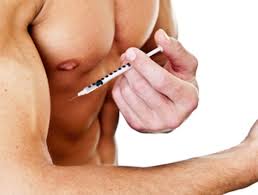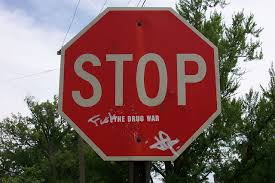Medications for Heroin and Pain Pill Addiction
Medications for Heroin and Pain Pill Addiction: Their Effectiveness and Side effects
The best way of handling substance abuse is primarily to prevent it from happening. Treatment cannot be an option if we all did the right things and prevented it from happening. But because of the short comings we have as a society, we have found ourselves with this problem and so we have to take the next appropriate cause of action. When one is already addicted to any drug, treatment must take place immediately. For this reason, we want to explore into this discussion some of the medications for heroin and pain pill addiction to help us restore our life back to normalcy. It is however important to note that when we are talking about treatment, everyone is involved. This is not something that is left to the medical professionals only. Family members, friends and relatives have a major role to play in the recovery process of their loved ones. Doctor Dalal Akoury is going to take us through some of the available medications for this purpose.
Experts at AWAREmed Health and Wellness Resource Center a facility founded by doctor Akoury are in agreement that unlike in the past, today there are so many types of medications that are applicable to heroin addiction and other substance abuse. Such treatment options may including medications, behavioral therapies and support groups. We are privileged that there are very many health facilities across the globe that are professionally handling matters relating to addiction. However doctor Akoury says that when settling for one, you must seek for more information to establish whether your needs will be handled professionally and with great confidentiality.
Under normal circumstances treatment often begins with medically assisted detoxification, the reasons for this is to help patients withdraw from the drugs they are addicted to safely. Nonetheless it is important to note that detoxification alone is not enough treatment and has not been shown to be effective in preventing relapse. This is merely the starting point. Therefore after detoxification, cognitive behavioral therapy, psychotherapy, marriage and family counseling or any other form of psychotherapy that fits the patient’s needs will follow. The next step would be procedures of reintegration into the society and most importantly is getting a lifestyle that is abstinent from heroin and any other drug for that matter says doctor Dalal Akoury.
Medications for Heroin and Pain Pill Addiction: Heroin Withdrawal
Ordinarily the withdrawal syndrome from heroin may begin within 6 to 24 hours of cessation of the drug; whereas this is the procedure, this time frame may fluctuate depending on the degree of tolerance and the quantity of the last dose of drugs consumed. This can be identified easily by the following symptoms: sweating, malaise, anxiety, depression, priapism, extra sensitivity of the genitals in females, general feeling of heaviness, cramp-like pains in the limbs, excessive yawning or sneezing, tears, sleep difficulties (insomnia), cold sweats, chills, severe muscle and bone aches, nausea and vomiting, diarrhea, cramps and fever.
Besides those symptoms, many addicts also complain of a painful condition, commonly referred to as “itchy blood”, which often results in compulsive scratching that causes bruises and sometimes ruptures the skin, leaving scabs. Abrupt termination of heroin use often causes muscle spasms in the legs (restless leg syndrome). The intensity of the withdrawal syndrome is variable depending on the dosage of the drug used and the frequency of use. Very severe withdrawal can be precipitated by administering an opioid antagonist to a heroin addict.
Medications for Heroin and Pain Pill Addiction: Physical Opioid withdrawal
Three general approaches are available to ease the physical part of opioid withdrawal and they include the following:
The first is to substitute a longer acting opioid such as methadone or buprenorphine for heroin or occasionally another short acting opioid and then slowly taper the dose.
In the second approach, benzodiazepines such as diazepam (Valium) may be recommended for opiate withdrawal especially if there is comorbid alcohol withdrawal. Benzodiazepines may temporarily ease the anxiety, muscle spasms, and insomnia associated with opioid withdrawal.
The use of benzodiazepines must be carefully monitored because these drugs have a high risk of physical dependence as well as abuse potential and have little or no cross tolerance with opiates and thus are not generally recommended as a first line treatment strategy. Although heroin withdrawal is very unpleasant, it is rarely fatal.
Medications for Heroin and Pain Pill Addiction: Medications to Assist in Heroin Detox and Help Prevent Relapse
Methadone – this has been used for more than 30 years to treat heroin addiction. It is a synthetic opiate medication that binds to the same receptors as heroin; however, when taken orally, it has a gradual onset of action and sustained effects, reducing the desire for other opioid drugs while preventing withdrawal symptoms. Properly prescribed methadone is not intoxicating or sedating, and its effects do not interfere with ordinary daily activities. At the present time, methadone is only available through specialized opiate treatment programs. And like any other medication, it also has some side effects including the following: Drowsiness, weakness, nausea, constipation, headache and loss of appetite.
Buprenorphine – this medication was recently approved to be one of the options for heroin treatment including other substances as well. The difference between this and methadone is that it has lesser risk factors for overdose and withdrawal effects and most importantly, it can be prescribed in the privacy of a doctor’s office. Its side effects may include; Headaches, flu-like symptoms, dizziness, constipation, upset stomach, sleep problems.
Naltrexone – even though naltrexone is recommended for treating heroin addiction, it has not been widely utilized because of compliance issues. It is an opioid receptor blocker which has been confirmed to be effective in highly motivated patients. It should only be administered to patients who have gone through detoxification in order to prevent severe withdrawal symptoms. Its side effects may include nausea, vomiting, diarrhea, constipation, headache, dizziness.
Naloxone – this is a shorter acting opioid receptor blocker used to treat cases of overdose.
Finally when you are opting to using any of these medications, it will be very important that you consult with your doctor from time to time. Remember that prevention is very key in sustaining good health. Therefore you can talk to doctor Akoury today for professional guidance in handling medications for heroin and pain pill addictions in your life.
Medications for Heroin and Pain Pill Addiction: Their Effectiveness and Side effects





